Taking Care of Your Little One During the New Normal, Influencer Moms Hits Tania Ray Mina Has a Leak
What could be the leak from Tania Ray Mina?

Kapanlagi.com - During the pandemic, people are expected to do more activities at home. It's no wonder if you also limit your travel during the pandemic. In addition, some places are avoided because they are considered to have a transmission risk, including hospitals.
However, you may need to come to the hospital once in a while, both during the pandemic and in the new normal period. This is why you don't need to be afraid to come to the hospital now. Because by following the implemented health protocols, it's not a problem to come to the hospital if there is a need.
This is conveyed by dr. Anis Karuniawati, Ph.D, SpMK(K) (Head of Global Vaccine & Plasma Segment, Bioprocessing, Process Solutions, Merck Life Science) in the Merck Life Festival. "It's okay to be afraid, because if we're not afraid, we can't be careful," she said.
Furthermore, Dr. Anis also stated that there is indeed a risk of transmission in hospitals. The spread of disease that occurs in regular healthcare facilities is called nosocomical infection or nosocomial infection.
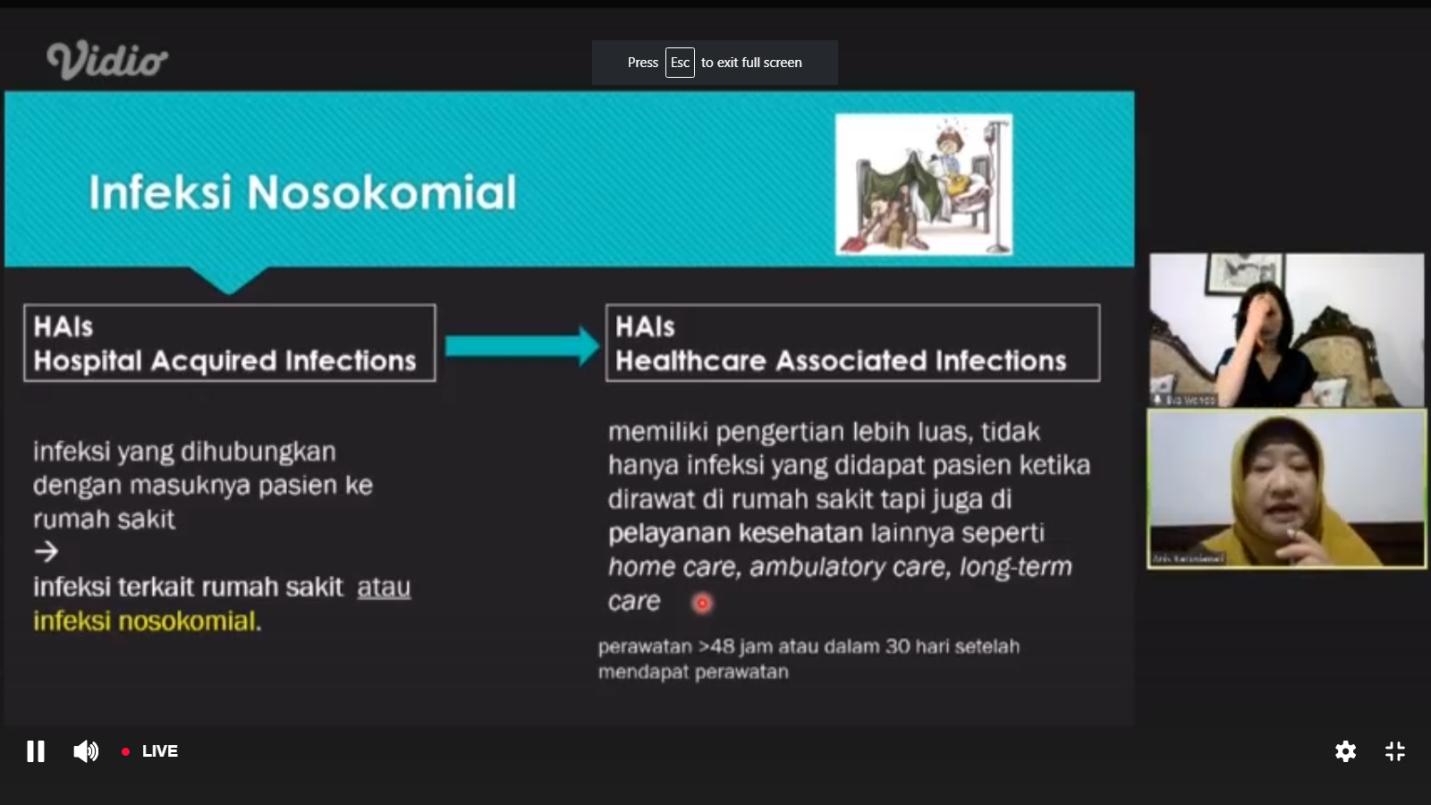
"What exactly is this nosocomial infection? Nosocomial infection is an infection acquired by patients while in the hospital. However, as it develops, nosocomial infection can also be defined as an infection acquired by patients when they are treated in other healthcare services, such as nursing homes or health centers. Patients can experience nosocomial infection after more than two days of treatment, or for surgical patients, nosocomial infection can also occur after 30 days of post-operative care," explained Dr. Anis.
Nosocomial infections can be caused by several factors. According to Dr. Anis, the presence of microbes such as bacteria greatly affects, both those inside the body, outside the body, and those originating from the use of antimicrobials. In addition, patient vulnerability also plays a role. Infants and the elderly, with low immune status such as malnutrition or chronic diseases, are also susceptible to nosocomial infections.
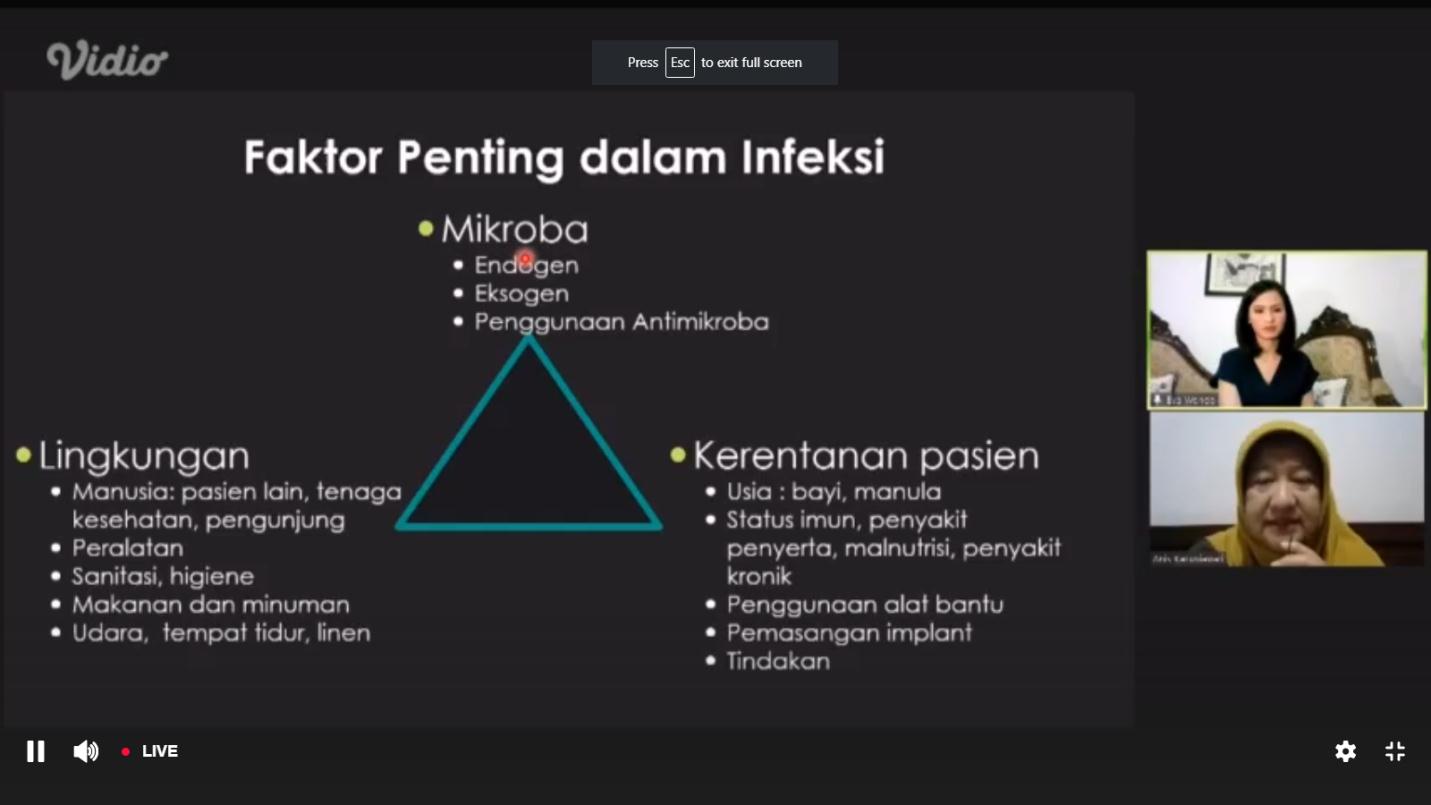
"The same goes for environmental factors. This is where the importance of maintaining sanitation and hygiene between patients, healthcare workers, and visitors in healthcare facilities, including food and beverages, beds, and air, to minimize the occurrence of nosocomial infections in hospitals," explained Dr. Anis.
Not only that, Dr. Anis also explained that contaminated rooms can cause patients in hospitals and healthcare facilities to be more susceptible to nosocomial infections. This can happen because bacteria on patients' bodies adhere to surfaces around the patients, bacteria then live and survive on surfaces, bacteria on surfaces contaminate objects and other people or patients, bacteria transfer from one person to another, bacteria from the previous patient before being treated to the next patient. Therefore, the lower the number of bacteria in the environment, the lower the risk of infection.
"Nosocomial infections commonly occur in urinary tract infections in the use of urinary catheters, bloodstream infections, pneumonia in the use of ventilators, and surgical site infections. Nosocomial infections rarely occur in skin and soft tissue infections, gastroenteritis, sinusitis, conjunctivitis, and endometritis after childbirth," added Dr. Anis.
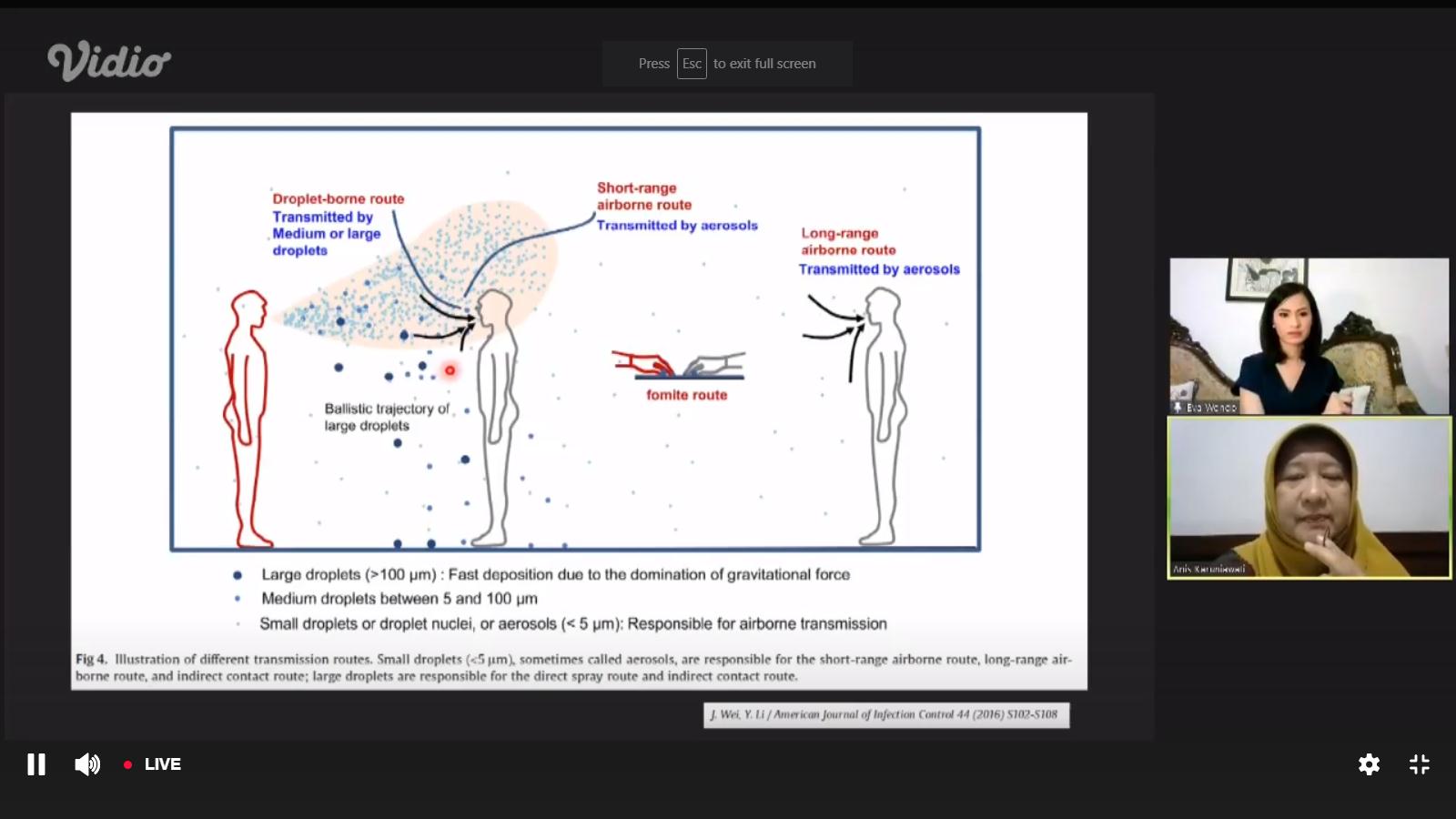
So, can Covid-19 also be a cause of nosocomial infections? According to Dr. Anis, Covid-19 can spread in two ways. First, through droplets from sneezing, coughing, or talking of someone with respiratory symptoms within a distance of 1 meter. This is called direct contact. Then, Covid-19 can also spread through fomites on objects around the patient contaminated with the virus. This is called indirect contact.
"The results of a study in 10 hospitals in the UK and 1 hospital in Italy stated that long hospital stays could increase the risk of nosocomial Covid-19. In addition, an incident in a large hospital in the US revealed that 1 out of 12 Covid-19 patients who tested positive on the 15th day also experienced nosocomial infection," explained Dr. Anis.
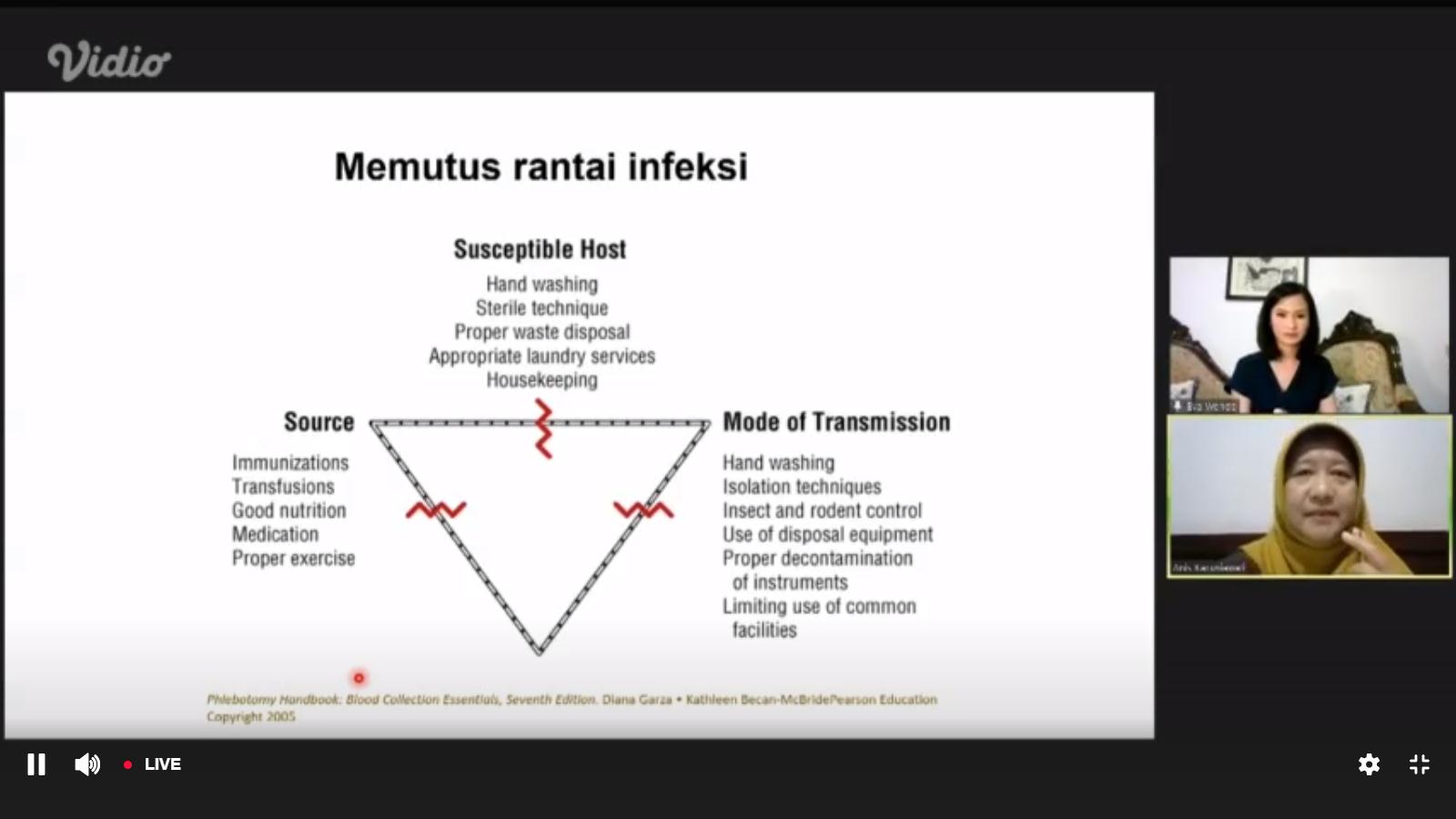
Now, to prevent nosocomial infections, hospitals have actually implemented strict health protocols, so you don't need to worry when visiting the hospital.
"The key is to follow all the rules in the hospital, including the current health protocols. Such as washing hands with soap until clean, for at least 20 seconds, every time you come to the hospital to prevent transmission on surfaces or fomites. Use standard masks to prevent the transmission of microorganisms, both through droplets like Covid-19, as well as through the air or airborne. In addition, only one person needs to accompany the patient to the hospital, no need for a group. If all these steps can be followed, the occurrence of nosocomial infections can be minimized," concluded Dr. Anis.
As additional information, the Merck Life Festival event is a virtual science and health festival held on December 12, 2020 by Merck Indonesia. In addition to Dr. Anis Karuniawati, Ph.D, SpMK(K), Merck Life Festival also presented various other speakers who discussed the changes and dynamics that occur in the field of science and health, as well as their impact on various aspects of human life.
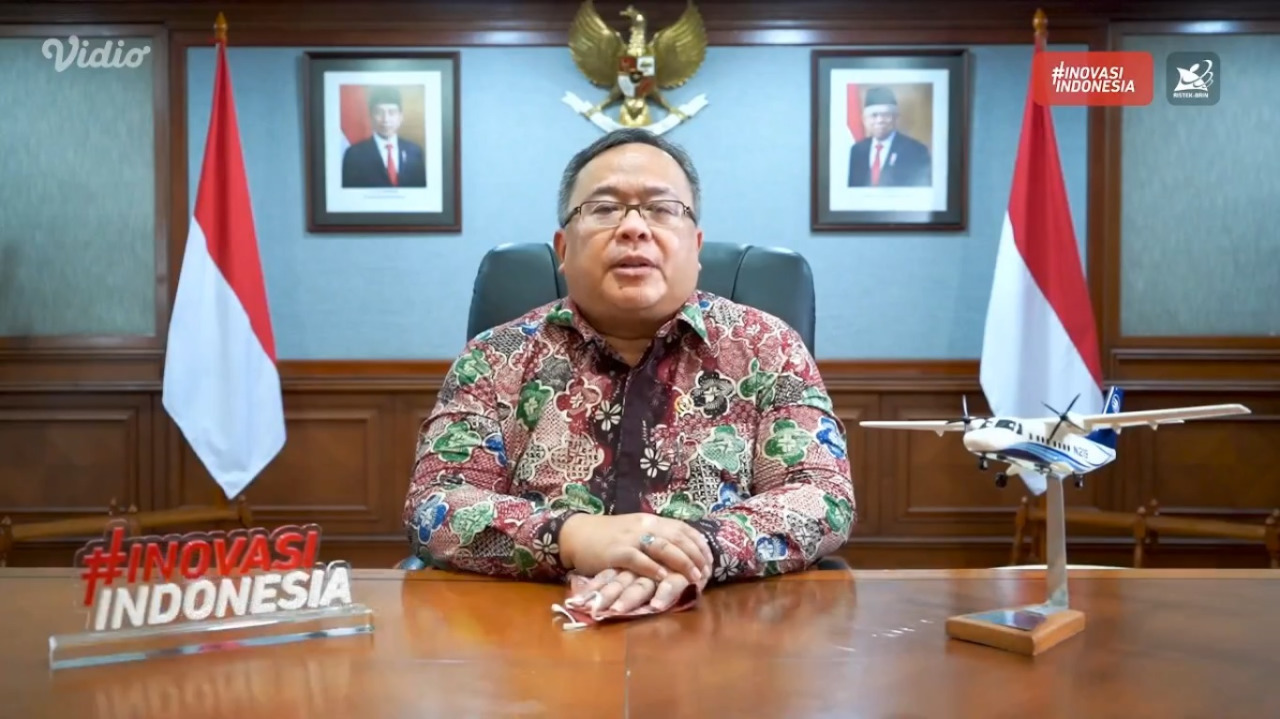
One of them is the Indonesian Minister of Research and Technology, Prof. Bambang P.S. Brodjonegoro, Ph.D, who also gave a speech. "Indonesia has a vision to escape the middle-income trap in 2035 and become a developed country in 2045. To promote a conducive innovation ecosystem, a triple helix synergy between academia, government, and industry is needed to drive innovation that can be implemented in society and become a driving force for the economy."
(kly/tmi)
Cobain For You Page (FYP) Yang kamu suka ada di sini,
lihat isinya
What could be the leak from Tania Ray Mina?
Nadine Chandrawinata will also hold an environmental preservation program with Joss C 1000 in 2021
Entering episode 9, PRS continues to provide entertainment and inspiration for you while experiencing moments at home.
The success key to collecting debt turns out to be only one, keep pressing, don't let them escape!
So, what are the fun activities?
Check out the highlights!
Seen from the following hobbies, what is your character like?
Here are their stories of having to switch careers in order to survive during the pandemic.
How should the facts about the use of hand sanitizer gel be applied? Find out the answer here!
Let's check out the highlights!
Get a glimpse of the unforgettable excitement!